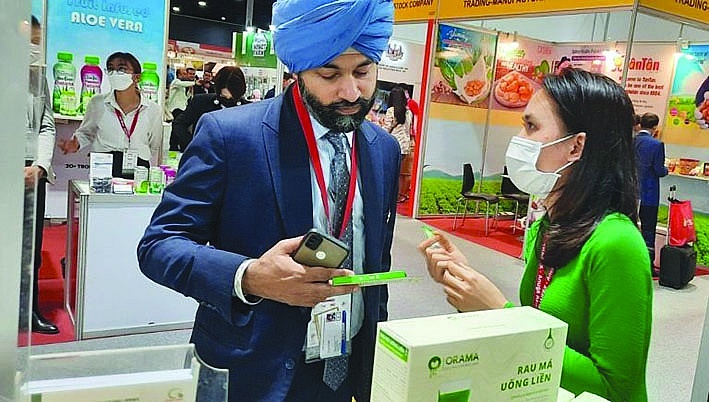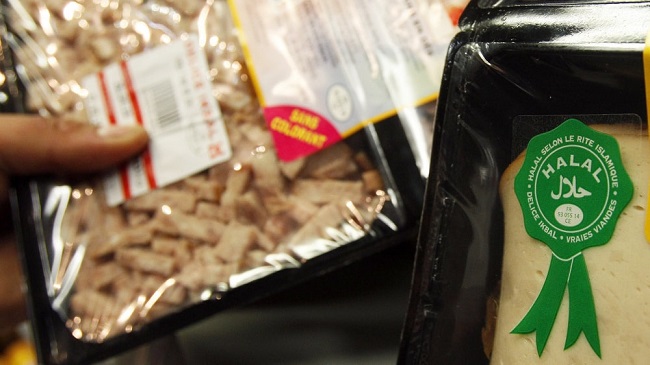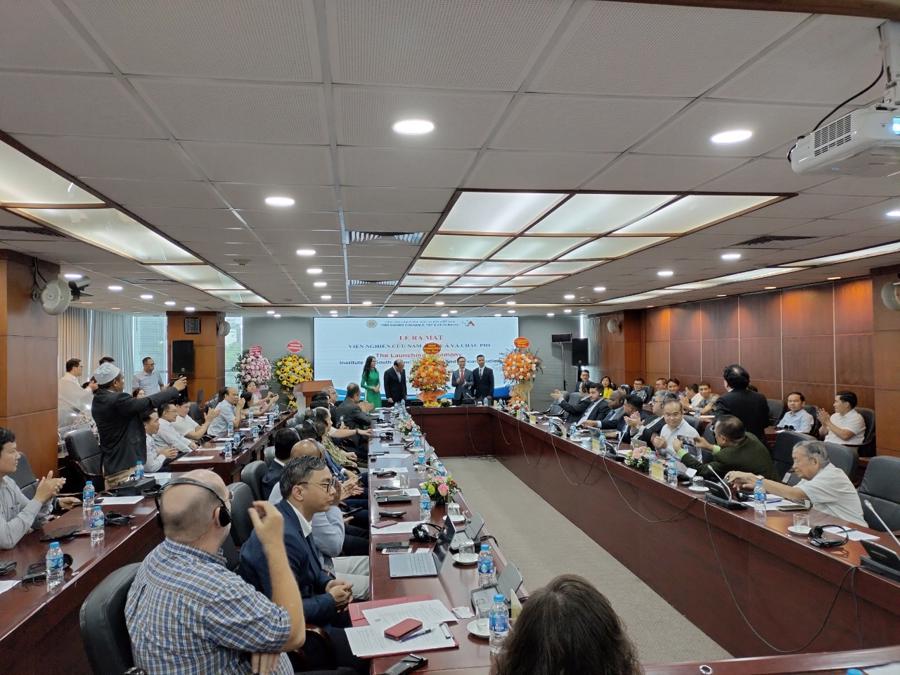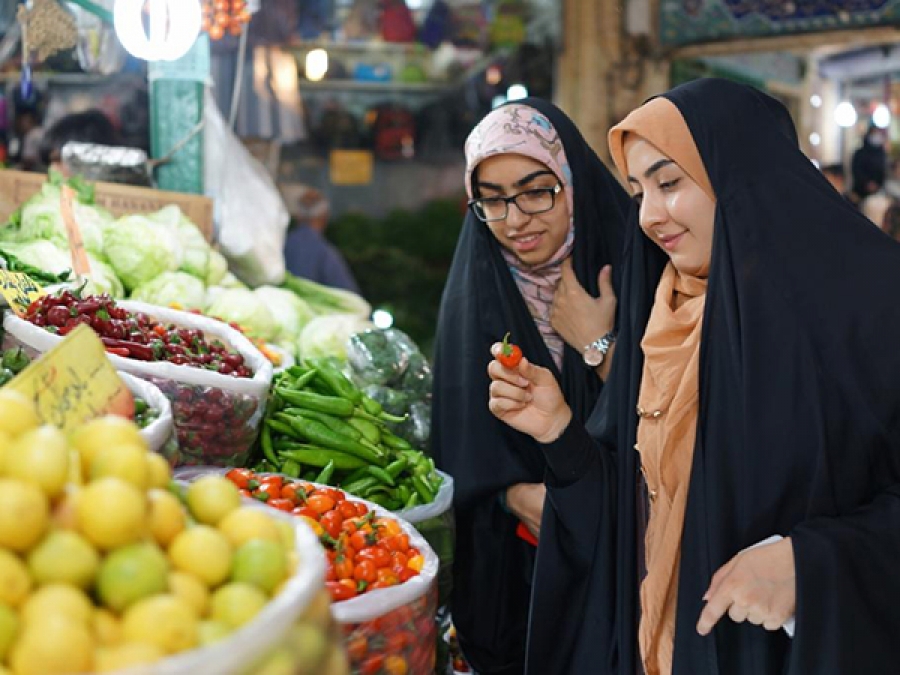The Halal market holds significant potential for Vietnamese exports; however, businesses remain hesitant and have not invested adequately due to limited understanding of the consumer culture and business practices in Islamic countries.
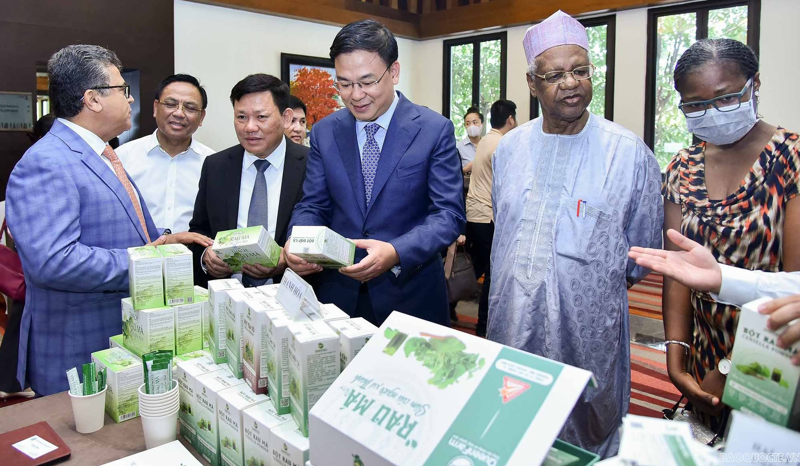
At the seminar “Potential to Promote Halal Agricultural Products to the Middle East Market,” organized by the Ministry of Industry and Trade, Mr. Le Chau Hai Vu, Halal food quality consultant and Director of Consultech JSC, stated that products certified as Halal must not contain any ingredients prohibited by Islamic law and must ensure “purity” throughout the production process.
Potential but Challenges
According to statistics, Islam is the second-largest religion in the world, with over 2.2 billion followers, accounting for 25% of the global population, spread across approximately 112 countries, primarily in Asia (60%), the Middle East (GCC), and North Africa (close to 20%). Muslims in China and India make up nearly 20% of the total Muslim population.
“The global Halal market is valued at over 2 trillion USD and is estimated to rise to 2.8 trillion USD in the coming years. This is truly a potential market for Vietnamese agricultural products,” noted Mr. Le Chau Hai Vu.
However, to export food and agricultural products to the GCC Islamic market, businesses need to comply with Halal standards as defined by the GSO standard. This includes ensuring that food and agricultural products are produced from ingredients free of any Haram (prohibited) substances according to Islamic law. The production and packaging processes must maintain the integrity of Halal, ensure food safety, consumer health, and compliance with Vietnamese law. Additionally, products must be properly packaged and labeled according to the Halal Assurance System (HAS) requirements.
“To ensure compliance with these standards, businesses must obtain Halal certification. This certificate serves as proof to customers that a company’s products have been thoroughly checked and fully meet Halal standards,” emphasized Mr. Le Chau Hai Vu.
Meanwhile, a major weakness of Vietnamese agricultural products lies in the lack of business management skills and capacity, as well as insufficient investment capital for equipment and quality control tools.
Infrastructure is not well-organized to optimize production and meet food safety standards. Farming practices often overuse pesticides, and the production and export of agricultural products do not fully comply with food safety and hygiene standards.
In the Gulf region market, Vietnamese agricultural products, although priced lower than similar products from the region, often struggle to compete due to lower quality.

Vietnamese businesses still lack sufficient understanding of the consumer culture and business practices of Islamic countries, leading to hesitation and a lack of investment. They face numerous challenges in obtaining Halal certification due to various regional standards and the high costs involved. Additionally, production systems often mix Halal products with Haram products (such as pork or alcohol).
A key issue is the lack of human resources, specifically Muslim employees to manage Halal production processes, and limited access to Halal ingredients. Many businesses are not well-versed in Halal standards, certification processes, or the relevant certifying organizations in Vietnam. Furthermore, there is a lack of proactive market research, and exports often rely on unreliable channels.
Although there have been promising signs of growth in exporting agricultural products to the Middle East, Vietnamese products have yet to establish a strong brand presence and face fierce competition from other countries such as India, Sri Lanka, Thailand, China, and Brazil.
In-depth Market Research and Investment Needed
At the seminar, Ms. Nguyen Minh Phuong, Head of the West Asia and Africa Division at the Asia-Africa Market Department, Ministry of Industry and Trade, also noted that the Middle Eastern market has a high demand for Halal products, particularly agricultural goods, presenting a great opportunity for Vietnamese products.
To successfully penetrate the Middle Eastern market, experts suggest that Vietnamese businesses should conduct in-depth market research to understand market trends. It is crucial to have a correct understanding of the religion, language, and business culture of the region, understand consumer preferences and sensitivities related to religion and culture, and comply with specific standards for product packaging and advertising.
Mr. Tran Trong Kim, First Secretary in charge of the Vietnam Trade Office in Saudi Arabia, recommends that businesses study market preferences and local regulations on quality management and food safety.
Additionally, companies should actively send product samples for promotion and display at the Trade Office and Embassy, and participate in trade promotion delegations with samples and promotional items for direct connections and gifts to international partners.
In line with current trends, Saudi Arabia is focusing on a green, healthy lifestyle and developing sustainable environments. Organic and environmentally friendly products are starting to gain appreciation and will be in demand in the near future. Therefore, businesses should consider producing in this direction to increase export value.
Moreover, companies need to build their own brands alongside selling, packaging, and labeling products according to the requirements of importers.
The Trade Office suggests that businesses increase efforts to find import channels that do not pass through the Red Sea (goods arriving in Saudi Arabia through the dry port of Riyadh, and the ports of Dammam and Yanbu, are currently unaffected).
“To avoid risks, when dealing with importers in this region, businesses should sign payment contracts through letters of credit (LC), with deposits, or pay in advance when possible. Companies should not pay any upfront fees related to contract brokerage fees or invoice issuance fees, as this is a common form of fraud,” Mr. Kim warned.


